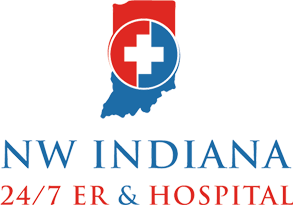Explore the similarities among common causes of itching and skin irritation and learn how to find relief.
We’ve all experienced the frustration of persistent itching caused by skin irritation. Whether it’s from allergens, bug bites, or plants, some of the most common irritants can be surprisingly similar. Bed bugs, lice, and poison ivy, though seemingly unrelated, share key characteristics—especially the intense itching and discomfort they cause. By understanding how these irritants affect your body, how they spread, and most importantly, how to treat them, you can find relief more quickly and prevent further irritation.
What do Lice, Bed Bugs, and Poison Ivy Have in Common?
At first glance, lice, bed bugs, and poison ivy may seem very different. Lice are often associated with school-aged children, bed bugs are pests that infest homes, and poison ivy triggers an allergic reaction when someone comes into contact with the plant outdoors. However, despite these known differences, these three irritants share some commonalities. Most notably, they all cause extreme itching and discomfort in the affected areas, making them more alike than many people realize.
Lice
What are Lice?
Lice are parasitic insects that live on the scalp, body, or any area with hair, feeding on blood. Their bites can cause an extremely itchy scalp or skin due to an allergic reaction to their saliva. Lice may be discovered in three life stages: eggs, nits (small insects the size of a pinhead), and adult lice, which are larger, fast-crawling insects with six legs.
How Lice Spreads
Lice are typically spread through close personal contact, such as hugging, or by sharing items like combs, hats, or headphones. Since lice crawl but do not fly, they require direct contact with an infected person or their belongings to spread.
Treatment for Lice
Over-the-counter shampoos or lotions are commonly used to kill lice. Additionally, using a lice comb can help remove eggs and ensure complete eradication. All clothing, bedding, and personal items that have come into contact with the infected person should be washed in hot water to prevent reinfestation.
Bed Bugs
What are Bed Bugs?
Bed bugs are small insects that feed on blood, similar to lice. They typically bite while you are asleep, leaving red, patchy, and extremely itchy welts on your skin.
How Bed Bugs Spread
Bed bugs spread quickly by attaching themselves to clothing, luggage, or furniture, and they can also crawl through walls. Outbreaks are commonly found in hotels, apartment buildings, public transportation, or any shared living space. Bed bugs are skilled at hiding in cracks and crevices, like in the mattress, making them challenging to find.
Treatment for Bed Bugs
To alleviate the symptoms of bed bug bites, over-the-counter anti-itch creams, antihistamines, and calamine lotion can be effective to reduce itching and inflammation. For more severe reactions, stronger treatment may be needed, such as a corticosteroid cream or oral antihistamines prescription. If you suspect a bed bug infestation in your home, it is recommended to contact a pest control professional to properly identify and eliminate the infestation.
Poison Ivy
What is Poison Ivy?
Poison ivy is not an insect like the other irritants, but it can cause significant discomfort upon contact. This poisonous plant produces an oil called urushiol, which triggers an allergic reaction when it comes into contact with your skin. This reaction results in a red rash that is often accompanied by intense itching, inflammation, and sometimes blisters.
How Poison Ivy Spreads
Also, unlike the other two irritants, poison ivy cannot be spread directly from person to person. However, it spreads through direct contact with the plant’s leaves, stems, roots, or any object that has been contaminated with urushiol oil. The oil can be transferred to clothing, pets, tools, or other objects, and if you come into contact with them, you may develop a rash.
Treatment for Poison Ivy
To treat poison ivy, it is essential to remove the urushiol oil from the skin. Over-the-counter products like hydrocortisone creams or calamine lotion can help soothe itching and inflammation. In severe cases, oral steroids or prescription creams may be necessary.
It is important to note that for more severe reactions to any of the irritants, it is recommended to seek a healthcare provider’s attention immediately.
24/7 Medical Care
While lice, bed bugs, and poison ivy may seem unrelated, they all share one major thing in common: extreme skin irritation featuring discomfort and itching. Understanding these three irritants can help protect you and your loved ones or, in the event of exposure, guide you on how to find relief quickly.
At NW Indiana ER & Hospital, our expert emergency care team is available 24/7 to provide fast, accurate care. Whether you’re experiencing severe skin irritation, blisters, or an allergic reaction, we’re here to help you feel better quickly and get the treatment you need. Your neighborhood ER & Hospital is here for you, without the wait.
Disclaimer: As a service to our readers, NW Indiana ER & Hospital and Nutex Health state no content on this site, regardless of date, should ever be used as a substitute for direct medical advice from your doctor or other qualified clinician.



0 Comments